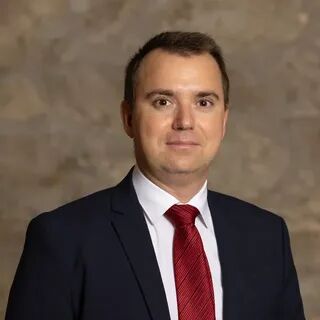2024. Május 15.

Szitás Péter
Kutatási igazgatóhelyettes
Az ELTE Nemzetközi Tanulmányok szakán szerzett BA, majd a Nemzeti Közszolgálati Egyetem Nemzetközi Biztonság- és Védelempolitika képzésén MA fokozatot. Szlovákiában korábban magyar-angol szakon diplomázott, ill. irodalomtudományból doktorált. Egyetemi oktatóként dolgozott a Nyitrai Konstantin Filozófus Egyetem Közép-európai Tanulmányok Karán, a komáromi Selye János Egyetem Gazdaságtudományi- és Informatikai Karán, ill. egy cikluson át Komárom város polgármesteri titkárságát vezette. Szakterülete a terrorizmus és a régió geopolitikája.